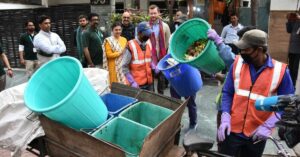Shocked By Fashion’s Role in Climate Change, Designer Turns Factory Rags Into Riches
Doodlage founded by Kriti Tula is a Delhi based design house that uses discarded waste cloth from factories to create her unique items of sustainable fashion line.
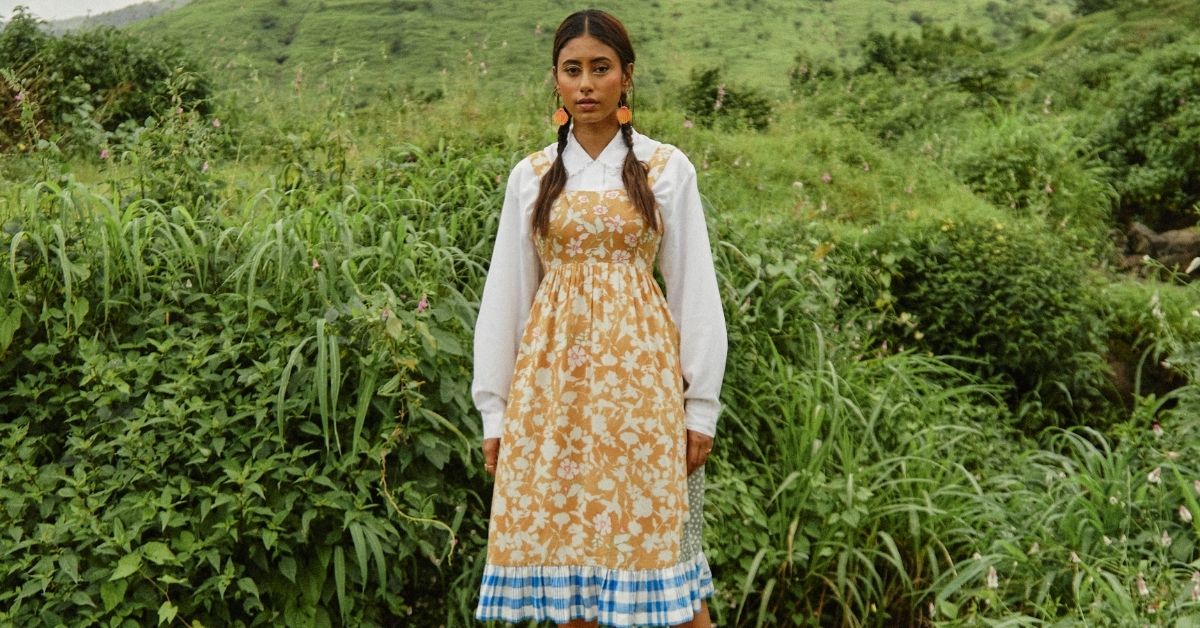
To stitch an outfit, I’d imagine a tailor takes a piece of cloth and makes abundant markings and cuts. Once the finished item is ready, the surplus material ends up in a landfill.
But 33-year-old designer Kriti Tula’s Delhi-based design house called Doodlage turns these ‘waste cloths’ into beautiful garments. Kriti made a business of using factory-discarded cloth to make clothes, stationery and even table cloths to sell as a sustainable alternative to high-end fashion.
“Almost 73 per cent of garment waste finds itself in landfills only because there are not many avenues to reuse that fabric,” says Kriti.

Doodlage came into being in April 2012 with an intent to upcycle and recycle waste material to form fresh pieces of wearable fabric. The Better India speaks to Kriti to better understand what the brand does.
Born and raised in Delhi, Kriti completed her under graduation in fashion designing from Pearl Academy in Delhi, post which she attended the London School of Fashion on a scholarship for her Master’s degree. “During the four years I spent studying in London I was also working and that gave me good exposure. One of the first jobs I had taken up in India was at an export house and that allowed me to understand the production side of things. That was also where I realised what I did not want to do vis-à-vis production and fashion,” she says.
‘Talking about sustainability when it wasn’t the fashionable thing to do.’
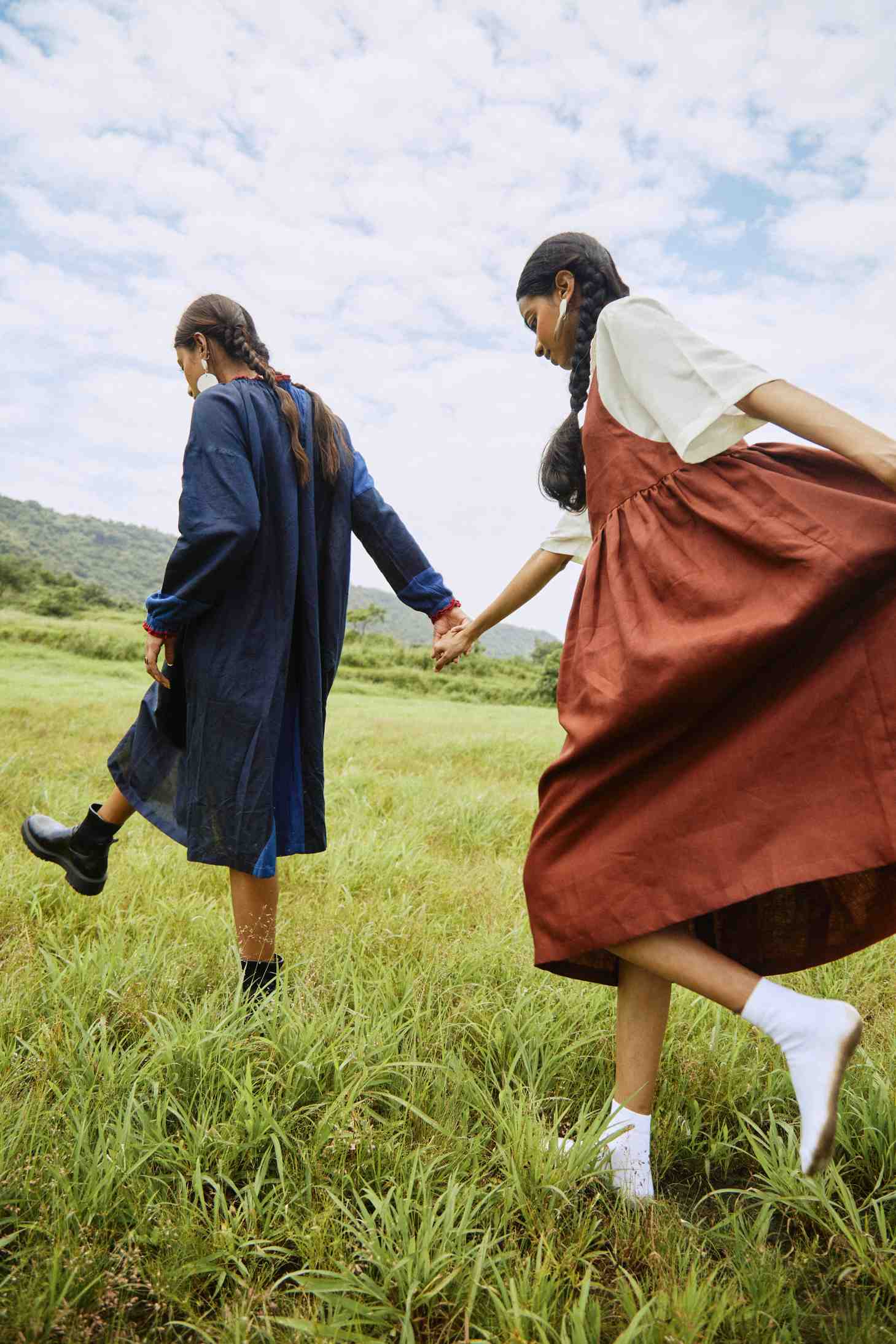
“In 2012 when Doodlage came into being there was no conversation happening around sustainability and responsible fashion. In a sense, we were among the first few brands to open up the discussion,” she says. Doodlage is a fashion house that is rooted in consciously making fashion pieces out of waste textile. “This was nothing but upcycling, a practice that we all grew up with in India. I remember a time when fashion was not so disposable and we did not just throw away clothes as easily as we do today. I remember wearing so many hand-me-down clothes of my siblings, and even after they were used multiple times over, my mother would find some use for the cloth. It was never just thrown out,” says Kriti.
While Kriti is a designer she says with honesty, “Fashion in itself is not a necessity. And for something that is not a necessity to be consuming this amount of resources just didn’t add up for me. That left me with just two options – either to work with someone who thought like I did or start something that espoused the values of sustainability.”
With this in mind she founded Doodlage along with Paras Arora and Vaibhav.
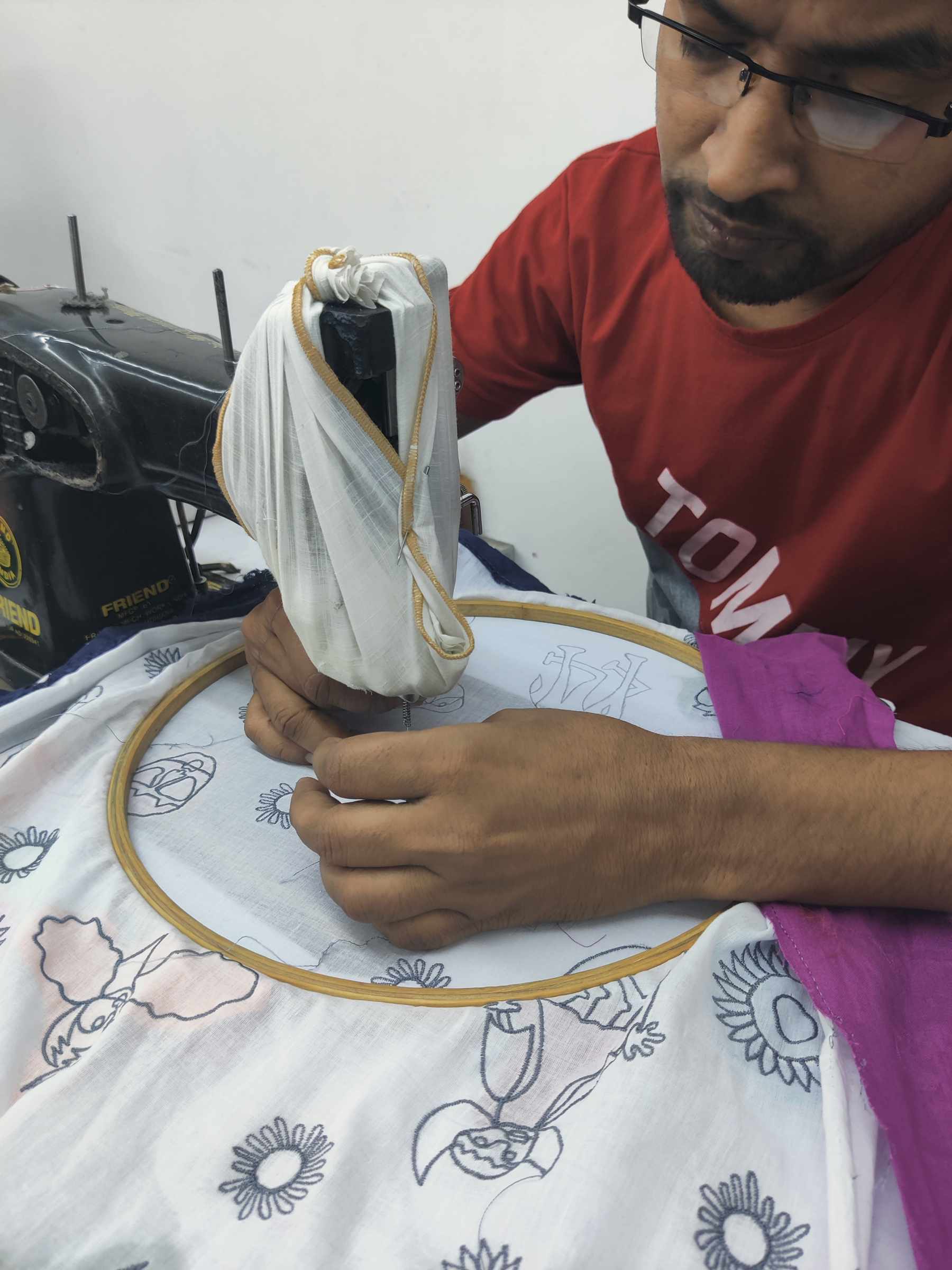
While Doodlage was founded in 2012 Kriti says that it wasn’t until 2018 that she joined the business full-time. “I had to save money to be able to invest in the company and make it work. So, I continued with a day job and when I had enough money saved up, I decided to join Doodlage.”
Explaining the reason behind the name Doodlage, Kriti says, “More than an artist I consider myself to be a ‘doodler’ (sketcher) and the fact that every doodle created is unique fits right into what we were trying to achieve. Each garment we make is unique and stands out and hence the name Doodlage.” While the difference between one product and another is small, it is one that will stand out. With a line of multiple blue shirts, there might be one with a patchwork pocket and another with a completely different design element.
She says that each artist working on a particular garment has their own way of working with it and coming up with the end product. Each piece has a little bit of the artist in it. “We stay away from standardisation and instead work towards generating the least waste during production,” she adds.
‘A learning for us and the customers.’
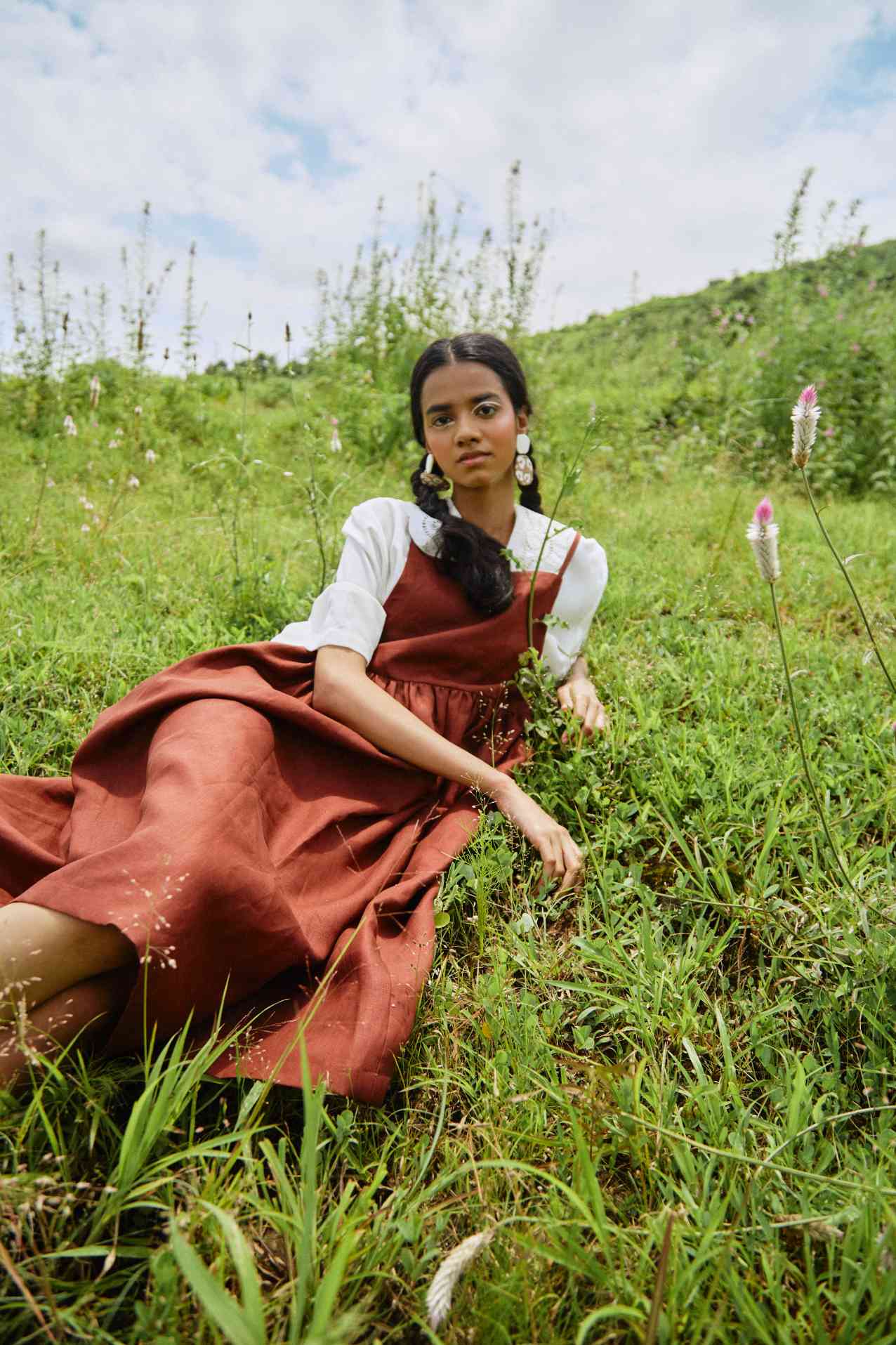
Back in 2012, when the brand was launched, there were close to zero conversations about the environmental impact of fashion. Words like sustainable, recycle and reuse were not associated with the fashion industry and therefore the brand had to work doubly hard to get their point across. “It was difficult, there is no doubt about that. From having conversations with our customers about what we were trying to achieve to convincing vendors to supply to us,” says Kriti.
“Customers were always asking us why our clothes were priced (upwards of Rs 5,000) at what they were if they were all made with waste material,” says Kriti. Over the years, she says that they have been able to change a few mind sets and that it is heartening to now see returning customers as well. “It has been a learning process for us and our customers,” she says.
The pandemic has also pushed people into thinking about making sustainable choices and that also now extends to clothes and fashion.
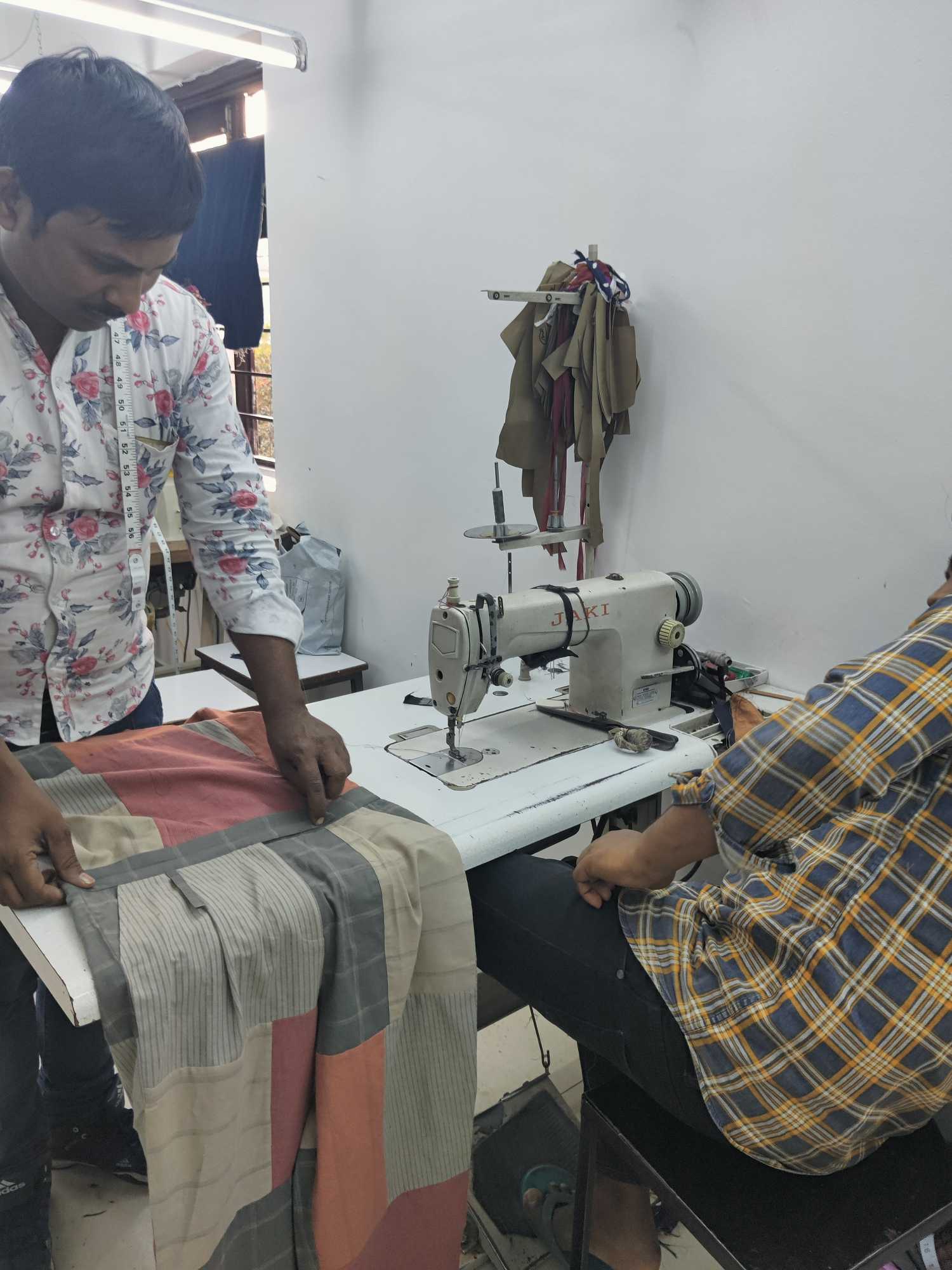
Speaking about the impact that Doodlage has managed to achieve over the years, Kriti says, “We have focussed on taking on corporate projects to scale our impact. As an example, with our recent collaboration with Allied Blenders and Distillers Pvt. Ltd for Sterling Reserve Blend 10 we created handcrafted reusable packaging made by artisans in India with the use of upcycled fabric waste. This initiative alone diverted more than 5000 kg of fabric from landfills and saved over 46 million litres of water in the process.”
Besides buying clothes from the brand, you can also get stationery, laptop sleeves and even table cloth all made out of discarded material. The company today has 25 employees and has grown over 1.5 times year-on-year in revenue over the last two years.
On the Doodlage website you can also access content to help you understand what sustainability with respect to fashion means and how you can choose consciously. Click here to access the content.
You can shop for Doodlage products here.
(Edited by Yoshita Rao)
If you found our stories insightful, informative, or even just enjoyable, we invite you to consider making a voluntary payment to support the work we do at The Better India. Your contribution helps us continue producing quality content that educates, inspires, and drives positive change.
Choose one of the payment options below for your contribution-
By paying for the stories you value, you directly contribute to sustaining our efforts focused on making a difference in the world. Together, let's ensure that impactful stories continue to be told and shared, enriching lives and communities alike.
Thank you for your support. Here are some frequently asked questions you might find helpful to know why you are contributing?


This story made me
-
97
-
121
-
89
-
167




